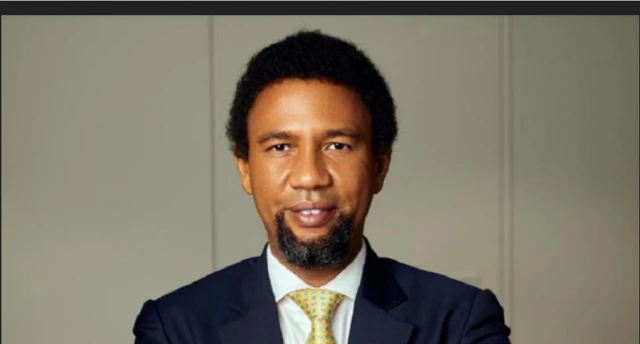Telecommunication operators have requested a 100 percent increase in their tariffs, as revealed by MTN Nigeria's chief executive officer, Karl Toriola.
He mentioned, however, that the Nigerian Communications Commission (NCC) is unlikely to approve such a significant increase due to the sensitivity of the current economic climate in the country.
“We remain hopeful and optimistic that the realities are evident, and the right decision will be made for the industry's sustainability,” he stated during an appearance on Arise TV on Thursday.
According to Toriola, the telecom sector is currently grappling with sustainability issues, with inflation and the devaluation of the naira driving up operational costs. He pointed out that the authorities are aware of the situation and are working to address it. For the past decade, telecom companies have been advocating for a review of tariff prices, proposing a 40 percent increase in 2022.
However, significant losses since 2023, following a major devaluation of the naira, have exacerbated the challenges faced by telecom operators, leading to increased demands for tariff hikes. After incurring a loss of N137 billion in 2023, MTN reported a loss of N514.93 billion for the nine months ending September 2024, despite a 33.7 percent rise in service revenue to N2.37 trillion. Similarly, Airtel's revenue dropped by 46.9 percent to $755 million during the same timeframe.
Toriola recently stressed, “There should be no illusion; if tariffs do not increase, we will shut down.”
In related news, following a stakeholder meeting in December, Gbenga Adebayo, chairman of the Association of Licensed Telecommunications Operators of Nigeria (ALTON), warned, “If no action is taken, we may start to see dire consequences in the new year, such as service interruptions; operators might struggle to provide services in certain areas and at specific times, leaving millions disconnected.”
On Thursday, Toriola reiterated that the sector is facing a sustainability issue rather than a profitability one, as it can no longer cover its operational expenses. “The costs we are incurring are surpassing our revenue, even though we are experiencing revenue growth. The industry cannot continue to sustain itself and deliver the necessary quality service under this current structure,” he explained.
Industry stakeholders believe that the future of the telecoms sector in 2025 will hinge on tariff discussions. There are signs that the regulator may approve increases, with the CEO of a leading telecom company informing BusinessDay, “It hasn’t been approved yet, but it is likely to happen soon.”
Bosun Tijani, the minister of Communications, Innovation and Digital Economy, recently acknowledged, “We believe there may be a necessity for that.” He added, “Beyond the discussions regarding tariff increases, which have been the focus, there is much more we need to do as a nation to ensure the sector remains competitive.”
Related Reading
Ncc-to-sanction-elon-musk-s-starlink-for-unauthorised-price-hike
Ncc-announces-final-deadline-for-nin-sim-linkage-compliance
Nin-sim-ncc-announces-linkage-of-all-phone-number




















